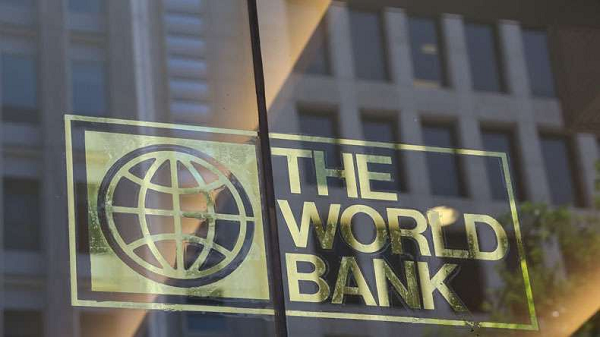
by Editor | May 25, 2021 | World
 Beijing : The World Bank has raised China’s growth forecast for 2017 from 6.5 per cent to 6.7 per cent and from 6.3 per cent to 6.4 per cent in 2018, authorities said on Thursday.
Beijing : The World Bank has raised China’s growth forecast for 2017 from 6.5 per cent to 6.7 per cent and from 6.3 per cent to 6.4 per cent in 2018, authorities said on Thursday.
In its latest East Asia and Pacific Economic Update report, the World Bank pointed out the new forecast follows an improvement in forecast for the entire Asian region, which is expected to grow at 6.4 per cent in 2017 as compared to 6.2 per cent that was announced in April, and of 6.2 per cent in 2018, as compared to 6.1 per cent six months ago.
According to the Washington-based institution, the upward revision of the forecast is partly owing to government measures to check overcapacity, credit expansion and restructuring of state corporations, and streamlining the country’s shadow banking sector, reports Efe news.
The report added geopolitical tension, rising trade protectionism and economic nationalism could, however, affect growth elements such as exports, whose recovery this year contributed to growth.
China’s growth is expected to be moderate in 2018 and 2019, although it will still be higher than that of many other Asian economies, the report said.
In the first quarter of 2017, China grew at 6.9 per cent, partially due to increased consumption that contributed 4.4 per cent to the country’s growth, while investment contributed 2.8 per cent.
The World Bank’s forecast is in line with the Asian Development Bank, which at the end of September had said China’s economy is expected to grow at 6.7 per cent this year.
—IANS
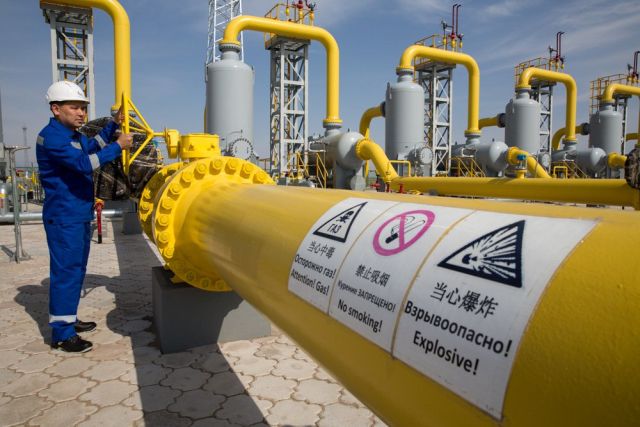
by Editor | May 25, 2021 | Business, Large Enterprise, World
 Astana : Kazakhstan has signed a trade agreement with China covering exports of 5 billion cubic meters of natural gas to the Asian giant for a year, a deal that is expected to generate $1 billion in earnings for the Central Asian country, JSC KazTransGas said Tuesday.
Astana : Kazakhstan has signed a trade agreement with China covering exports of 5 billion cubic meters of natural gas to the Asian giant for a year, a deal that is expected to generate $1 billion in earnings for the Central Asian country, JSC KazTransGas said Tuesday.
“The contract was signed by JSC KazTransGas and PetroChina International Company Limited on September 30 in Beijing. Gas export deliveries are scheduled to begin on October 15,” the Kazakh company’s press service said in a statement, reports Efe.
“Expected export earnings will be around $1 billion,” JSC KazTransGas said.
The natural gas will come from fields in western Kazakhstan, as well as reserves at JSC KazMunayGas’s underground storage facilities.
China will take delivery of the gas via the Khorgos border point, the most important trade frontier between the countries.
“The diversification of transit and export routes for gas transportation in Kazakhstan, as well as the increase in the volume of natural gas exports, are important strategic objectives for the country,” JSC KazMunayGas vice president of transportation and gas trading Kairat Sharipbayev said.
Exports of Kazakh gas to China are aimed at promoting beneficial bilateral relations focused on creating a common infrastructure and establishing trade and transport links in the Eurasian region, the statement said.
The agreement also calls for bolstering bilateral strategic energy relations, as indicated by the production of 25 per cent of Kazakh oil by Chinese companies.
—IANS
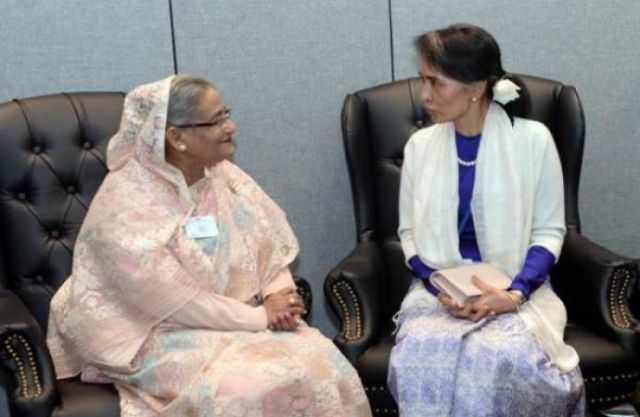
by Editor | May 25, 2021 | Opinions

Sheikh Hasina and Aung San Suu Kyi
By Subir Bhaumik,
Sheikh Hasina and Aung San Suu Kyi have much in common. They are daughters of great fathers who spearheaded the freedom struggles of their countries (and both lost their fathers early). Both fought bitter, protracted struggles against brutal military juntas to restore democracy in their countries. Both now run their countries but live under threat of conspiracies to unseat them, trying to control their powerful militaries and rising religious fundamentalist forces, often backed by men in uniform.
But they differ in some ways.
Suu Kyi married a British professor after her initial education in India where her mother served as ambassador of Burma (before it became Myanmar). Her style is sometimes more British than Burmese due to her Oxbridge education. Despite her long years in prison and successful leadership of the National League for Democracy (NLD) in sweeping the 2015 elections and coming to power, some say she is still coming to terms with the realities of a country ravaged by conflict and poverty. She is the daughter of Aung San, the independence war hero who tried to forge a stable federation with Myanmar’s diverse people but was murdered, like Mahatma Gandhi, just when the country was attaining freedom.
Hasina survived the assassination of almost her entire family, spent some years in India before she returned to revitalise her father’s Awami League party and bring down the military junta in a fierce street agitation. She led it to power for a term in 1996 and then again in 2008. After two terms in power and 11 assassination attempts, Hasina is a strong grassroots leader with a clear vision to make Bangladesh a middle-income country by 2021 and a developed economy by 2041. Once derided as a “basket case”, Bangladesh has seen a steady 6 per cent plus GDP growth through her two terms in office (2009-14 and 2014 to now) in a world marked by economic downturn.
She has managed to control the army and enforce civilian supremacy, which Suu Kyi aspires to but has so far failed to do, as the recent Rakhine crisis seems to indicate. Hasina faces Parliament elections next year amid increased anti-incumbency and a refugee crisis that is stretching Bangladesh’s meagre resources. Hasina’s government has managed to handle nearly half a million Rohingyas who have taken refuge in Bangladesh after the brutal Burmese military crackdown that followed alleged jihadi attacks on August 24 against 30 police stations and one army base in northern Rakhine.
As Suu Kyi, a Nobel Laureate for her fight for democracy, stayed away from the UN General Assembly in the face of severe criticism, with some even suggesting that her Nobel Prize be taken back, Hasina has been striding the global stage confidently, winning nomination for the Nobel for her leadership in the fight against climate change and terrorism and all-round human development in her once-poor nation ravaged by frequent natural disasters.
Suu Kyi could emulate Hasina in at least three areas — unleashing powerful forces of human and economic development, controlling the military and terrorist groups who often complement each other, and restoring a sense of national pride by resolving fractious domestic issues.
Both “Daughters of the East” represent the legacy of their great fathers and on their governance success and depth of vision depend the future of Asia’s most strategic link region that connects South to Southeast and East Asia. It is time the two big Asian powers, India and China, step in to back both these women in their governance challenges against violent separatism, religious fundamentalism, poverty and refugee crisis.
(Subir Bhaumik can be reached at sbhaum@gmail.com)
—IANS
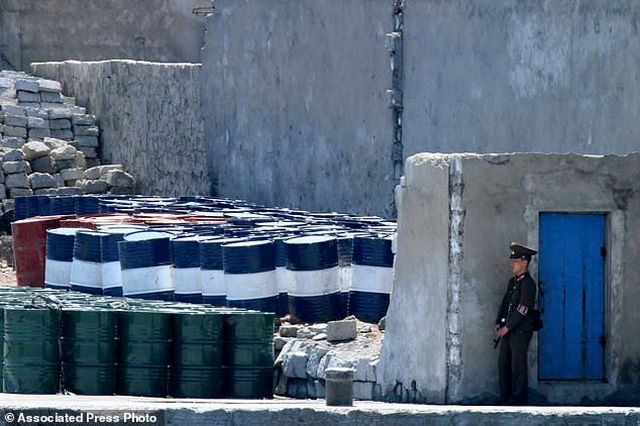
by Editor | May 25, 2021 | World
 Beijing : China on Saturday announced that it would restrict oil exports to North Korea from October 1 and also suspend textile imports from Pyongyang.
Beijing : China on Saturday announced that it would restrict oil exports to North Korea from October 1 and also suspend textile imports from Pyongyang.
The Ministry of Commerce will implement UN Security Council Resolution 2375 by halting the export of liquified natural gas and gas condensate and limit exports of refined oil, reports Xinhua news agency.
However, the ban on textile imports will be effective from Saturday, it said.
Refined oil exports to North Korea from all UN members is capped at 500,000 barrels from October 1 to the end of the year and 2 million barrels annually from January 1, 2018.
China will suspend such exports once the total exports approaches the ceiling.
Exported refined oil products must be used fully on civil purposes, not for North Korea’s nuclear and ballistic missile programmes, or other activities banned by the UN Security Council, the ministry said.
Last week, the Council unanimously adopted resolution 2375, imposing fresh sanctions on North Korea over its nuclear test on September 3, which violated previous UN resolutions.
—IANS
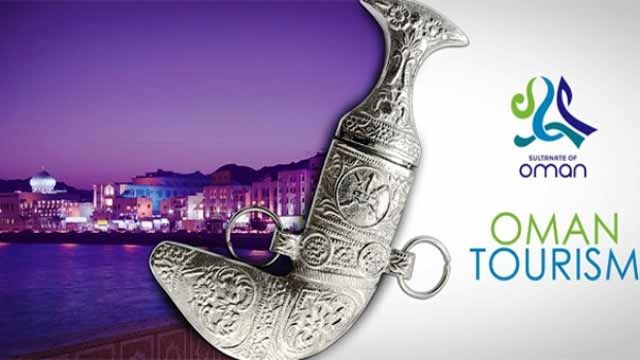
by Editor | May 25, 2021 | Business Summit, Events, Muslim World
 Chengdu, China : Oman, represented by the Ministry of Tourism, is currently participating in the twenty-second session of the General Assembly of the World Tourism Organisation (WTO), the meeting of the Middle East Committee and the Committee on Tourism and Sustainability, held in Chengdu.
Chengdu, China : Oman, represented by the Ministry of Tourism, is currently participating in the twenty-second session of the General Assembly of the World Tourism Organisation (WTO), the meeting of the Middle East Committee and the Committee on Tourism and Sustainability, held in Chengdu.
Ahmed bin Nasser al-Mahrzi, Minister of Tourism, leads the Sultanate’s delegation.
The Ministry of Tourism has been keen to participate in the meetings of the General Assembly, to meet with its counterparts from the outside world, in order to strengthen bilateral relations in the field of tourism and its belief in the importance of this vital sector, for achieving sustainable development, its ability to achieve a diversified economy, preserve cultural heritage, while preserving biodiversity and supporting efforts, through which international bodies seek to develop in the tourism sector.
The agenda of the session for the year includes a number of different provisions for serving the tourism sector, in all Member States of the Organisation, including the approval of the guidelines for the adoption of the draft World Tourism Organisation Convention, to monitor the application of tourism ethics, the presentation of the relevant committee’s report thereon, the appointment of an ad hoc committee, to finalise the draft, and the selection of the world committee on tourism etiquette.
—NNN-ONA

 Beijing : The World Bank has raised China’s growth forecast for 2017 from 6.5 per cent to 6.7 per cent and from 6.3 per cent to 6.4 per cent in 2018, authorities said on Thursday.
Beijing : The World Bank has raised China’s growth forecast for 2017 from 6.5 per cent to 6.7 per cent and from 6.3 per cent to 6.4 per cent in 2018, authorities said on Thursday.



